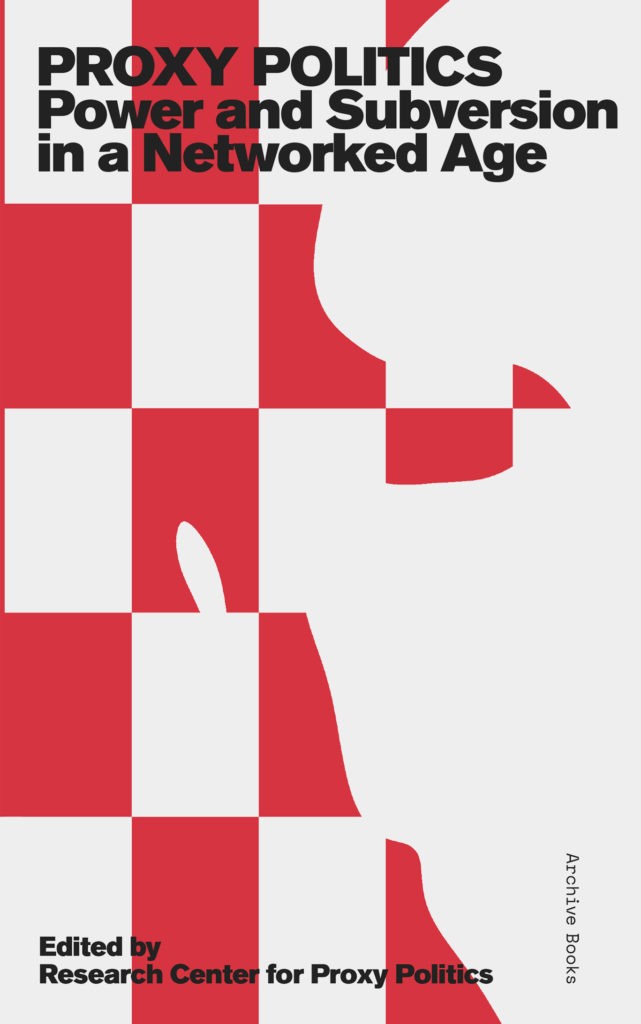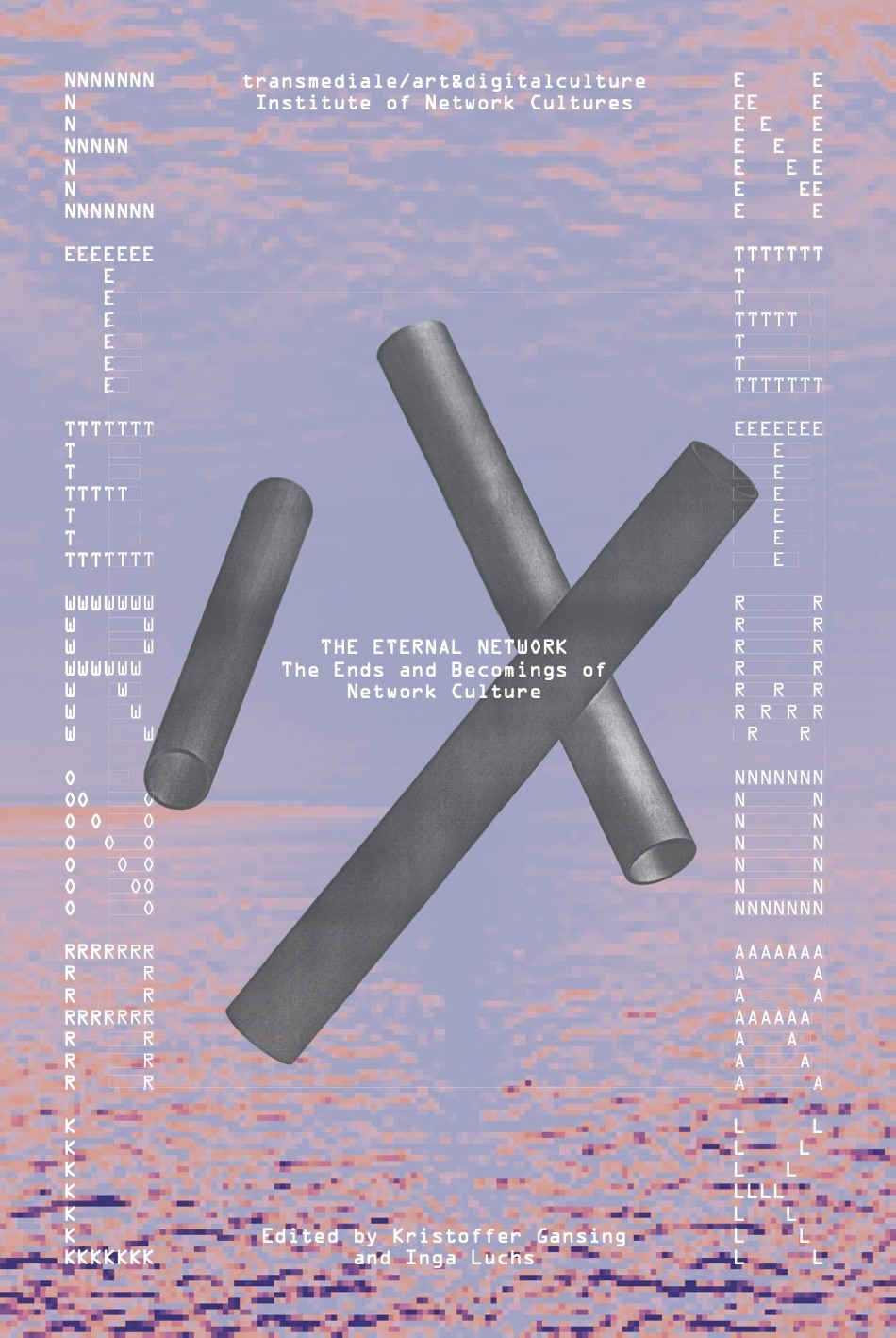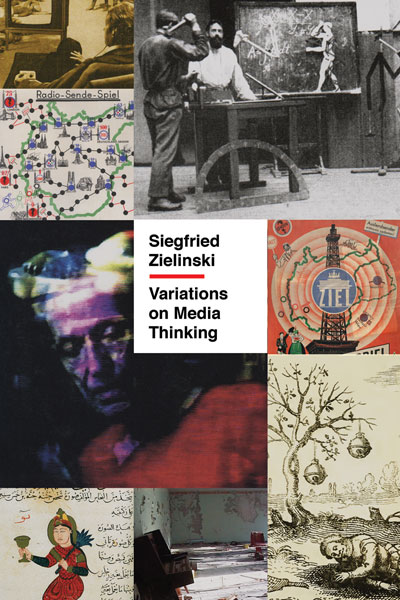Proxy Politics: Power and Subversion in a Networked Age (2017)
Filed under book | Tags: · art, image, internet, media, networks, politics

“The proxy, a decoy or surrogate, is today often used to designate a computer server acting as an intermediary for requests from clients. Originating in the Latin procurator, an agent representing others in a court of law, proxies are now emblematic of a post-democratic political age, one increasingly populated by bot militias, puppet states, and communication relays. Thus, the proxy works as a dialectical figure that is woven into the fabric of networks, where action and stance seem to be masked, calculated and remote-controlled.
This publication looks at proxy-politics on both a micro and a macro level, exploring proxies as objects, as well as networks as objects. What is the relation between the molecular and the planetary? How to fathom the computational regime? Yet, whilst being a manifestation of the networked age, thinking like a proxy offers loopholes and strategies for survival within it.
The Research Center for Proxy Politics (RCPP) explores and reflects upon the nature of medial networks and their actors. Between September 2014 and August 2017, the center hosted workshops, lectures and events at the Universität der Künste, Berlin, under the auspices of Hito Steyerl’s Lens-based class.”
Contributors: Tom McCarthy, Kodwo Eshun, Goldin+Senneby, Brian Holmes, Nick Houde, Jonathan Jung, Laura Katzauer, Boaz Levin, Mikk Madisson, Doreen Mende, Sondra Perry, Oleksiy Radynski, Robert Rapoport, Hito Steyerl, thricedotted, Vera Tollmann, Miloš Trakilović.
Edited by Research Center for Proxy Politics (Vera Tollmann and Boaz Levin)
Publisher Archive Books, Berlin, October 2017
ISBN 3943620719, 9783943620719
256 pages
via catsoup
Editor
Publisher (archived)
WorldCat
PDF (11 MB)
Comment (0)Kristoffer Gansing, Inga Luchs (eds.): The Eternal Network: The Ends and Becomings of Network Culture (2020) [EN, DE]
Filed under book | Tags: · federated networks, floss, internet, net culture, network culture, networks

“‘The network is everlasting’ wrote Robert Filliou and George Brecht in 1967, a statement that, at first glance, still seems to be true of today’s world. Yet there are also signs that the omnipresence of networks is evolving into another reality. In recent times, the limits of networks rather than their endless possibilities have been brought into focus. Ongoing media debates about hate speech, fake news, and algorithmic bias swirl into a growing backlash against networks. Perhaps it is time to reconsider the contemporary reach and relevance of the network imaginary.
Accompanying transmediale 2020 End to End’s exhibition ‘The Eternal Network’, this collection gathers contributions from artists, activists, and theorists who engage with the question of the network anew. In referencing Filliou’s eternal notion, the exhibition and publication project closes the loop between pre- and post-internet imaginaries, opening up possible futures with and beyond networks. This calls many of the collection’s authors to turn to instances of independent and critical net cultures as historical points of inspiration for rethinking, reforming, or refuting networks in the present.”
Contributors: Clemens Apprich, Johanna Bruckner, Daphne Dragona, Kristoffer Gansing, Lorena Juan, Aay Liparoto, Geert Lovink, Alessandro Ludovico, Aymeric Mansoux, Rachel O’Dwyer, Luiza Prado de O. Martins, Roel Roscam Abbing, Femke Snelting, and Florian Wüst.
Publisher Institute of Network Cultures, Amsterdam, and transmediale e.V., Berlin, 2020
Creative Commons BY-NC-ND 4.0 International License
ISBN 9789492302465
145 pages
English: PDF, PDF (14 MB), EPUB, EPUB (18 MB), HTML (partial, added on 2020-7-16)
German: PDF, PDF (9 MB, added on 2020-12-4)
Siegfried Zielinski: Variations on Media Thinking (2019)
Filed under book | Tags: · hacker culture, internet, media, media archeology, media history, sound art, technology, variantology

“Expanding on Siegfried Zielinski’s inquiry into ‘deep time’ of the media, the essays in Variations on Media Thinking further the eminent media theorist’s unique method of expanded hermeneutics, which means for him interpreting technical artifacts as essential parts of our cultural lives. Covering such topics as the televisualized Holocaust, the ubiquity of media today, the Internet, the genealogy of sound art, and history’s first hacker movement, these essays further diversify Zielinski’s insight into the hidden layers of media development, which he first articulated in his pioneering work Deep Time of the Media.
Including many previously untranslated and scarce essays, these ‘written time machines’ open new lines of investigation for cultural scholars. From the automata of the Arabic-Islamic Renaissance (800–1200) to the largest and loudest techno-event ever, known as The Symphony of Sirens—which transformed Baku in 1922 into an immense music box of modern noise—Variations on Media Thinking covers Zielinski’s inquiries since 1975. Richly illustrated and full of provocation, brilliant insight, and fascinating research, this volume is perfect for students of media archaeology, philosophy, and technology, as well as any adventurous, rigorous thinkers engaged with culture and media.”
Publisher University of Minnesota Press, 2019
Posthumanities series, 52
ISBN 9781517907075, 1517907071
xxv+428 pages
PDF (71 MB)
Comment (0)
